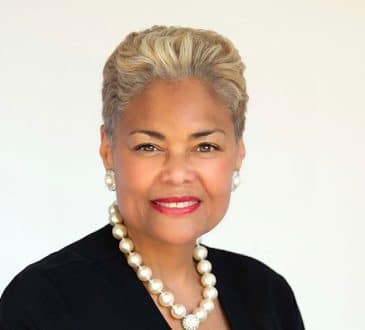Follow the Logic: Why Boards Need Communications Expertise

Take this simple test. True or False:
| 1. One of the primary roles of a Board of Directors is to advise the CEO. | T | F |
| 2. One of the primary roles of a CEO is to communicate with multiple stakeholders. | T | F |
| 3. Most Boards of Directors include Communications experts. | T | F |
If you believe Points 1 and 2 are true, you are in good company. Governance and leadership authorities consistently cite advising the Chief Executive Officer and effective communication as key responsibilities of boards and CEOs.
If you also believe Point 3 is true, you are wrong. Today’s boards are mostly made up of sitting or former CEOs and Chief Financial Officers. And based on PwC’s 2015 corporate directors survey, that is likely to continue. When seeking new board members, more than 90 percent rank financial expertise at the top, followed by industry (70 percent) operational (66 percent), and risk management expertise (62 percent).
Based on the strategic, operational and financial responsibilities of a CEO, that makes sense – but it’s also an old-school view. In addition to traditional roles, today’s CEOs are shaping and driving their organization’s vision, building their culture and connecting the outside of their company to the inside. Even in good times, most would benefit from broad communications counsel. And if there’s a crisis, PR expertise is even more of a priority.
Including a Communications expert on boards is especially important with small- to mid-size companies, private equity firms and nonprofits, who may have smaller or less experienced Communications staff. Even with a robust PR team, a board-level person with a Communications background not only provides real-time guidance in board meetings, but serves as an objective sounding board for the CEO. That’s critical in today’s 24-7 digital environment, where messages flow inside and outside organizations like a boomerang on steroids.
How could board-level Communications counsel help organizations? Consider these examples:
Shaping a Robust Culture – CEOs play a pivotal role in creating a shared set of values, behaviors and goals that become an organization’s culture. It’s the invisible “guide” that influences decisions employees make on their own, every day. And effective cultures help engage employees, which impacts performance and growth. That’s a top concern of 45 percent of CEOs recently surveyed by INC Magazine, who said attracting and retaining talent is their biggest challenge. Communications plays a big role in influencing culture.
Leadership Transitions – Every year for the past four years, more than 1,200 CEOs have departed their positions (Challenger, Gray & Christmas, Inc.) This turnover creates tremendous turmoil in organizations – on their teams, the bottom line and company reputation. Communications counsel can help manage that transition.
Executing a Vision to Shape Reputation – CEOs help define their organization’s vision and rally the team to deliver. A robust vision is more than just words – it steers decisions and actions. An ongoing, holistic assessment of how the CEO and leadership team are executing that vision, asking questions and providing guidance every step of the way – will help build reputation. Ultimately it comes down to an organization’s past and present activities and perceived probability of future actions, through the lens of its stakeholders. Communications guidance can help here, too.
Public Policy Impact – Many business challenges intersect with major public policy issues. Think: cybersecurity, wage gaps, the environment, regulation, diversity, healthcare and others. Sustained solutions will require global, private and public partnerships, massive education and changing mindsets. Communications will play a major role in making this happen.
Crisis Management and Risk Mitigation– Smart CEOs ensure they have a crisis management plan to respond when disaster strikes. Savvy CEOs engage their stakeholders and assess risk to prevent many crises from happening in the first place. Examples: creating and maintaining a work environment that drives safety and cybersecurity, promoting equality in the work place, moving from cut-throat sales to true customer-centric behaviors. Communications advisors review trends, look around corners and ask questions – and provide counsel if a crisis occurs.
A Logical Addition
Boards will always require the breadth of business experience in former and current CEOs, the financial acumen in CFOs, specialized expertise from Chief Technology or Information Officers and relationships, cultural and regulatory knowledge from leaders who worked or work in specific geographic regions.
Adding a seat at the table for Communications experts is not only logical – it’s good for the board, the CEO and for business.
Have you read?
Business Lessons From Howard Schultz: Make Them Look Good
Top Priorities for a CIO to Meet Digital Demands in B2B Commerce
World’s 20 most attractive biopharmaceutical employers for 2016, according to Science magazine
Why the Best CEOs Are Product People at Heart
Written by: Katie McBride, Communications Executive, Strategist, and C-Suite Advisor at R3 Communications LLC.
Bring the best of the CEOWORLD magazine's global journalism to audiences in the United States and around the world. - Add CEOWORLD magazine to your Google News feed.
Follow CEOWORLD magazine headlines on: Google News, LinkedIn, Twitter, and Facebook.
Copyright 2025 The CEOWORLD magazine. All rights reserved. This material (and any extract from it) must not be copied, redistributed or placed on any website, without CEOWORLD magazine' prior written consent. For media queries, please contact: info@ceoworld.biz











